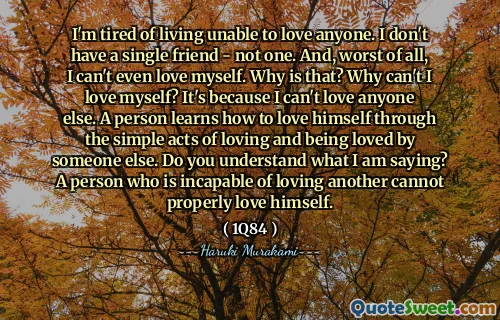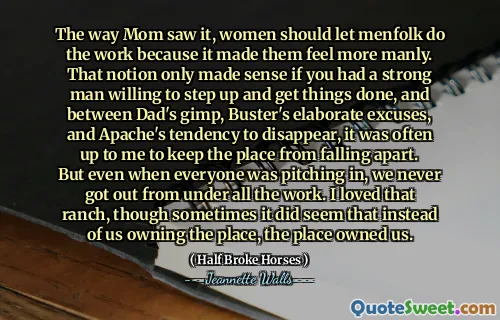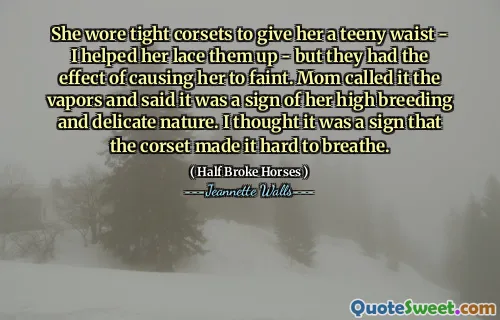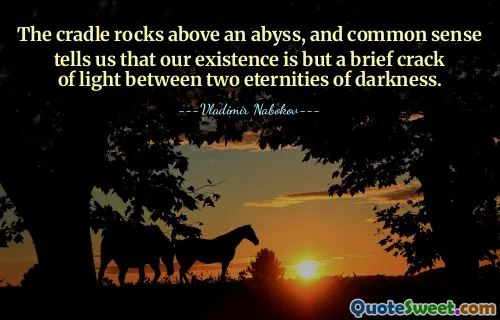All's well that ends well.''Assuming there's an end somewhere,' Aomame said.Tamaru formed some short creases near his mouth that were faintly reminiscent of a smile. 'There has to be an end somewhere. It's just that nothing's labeled This is the end. Is the top rung of a ladder labeled This is the last rung. Please don't step higher than this'?Aomame shook her head.'It's the same thing,' Tamaru said.Aomame said, 'If you use common sense and keep your eyes open, it becomes clear enough where the end is.'Tamaru nodded. 'And even if it doesn't' -- he made a falling gesture with his finger -- 'the end is right there.
Aomame and Tamaru engage in a dialogue about the concept of endings and how they’re often ambiguous in life. Aomame expresses a skepticism about the notion of clear conclusions, noting that life doesn’t always label when something is over. Tamaru humorously compares this to a ladder that lacks a warning about its last rung, highlighting the absence of clear signals in life.
Despite the uncertainty, Aomame believes that with awareness and common sense, one can often discern when something has reached its conclusion. Tamaru agrees, suggesting that even if clarity diminishes, the end is still present. Their exchange illustrates the complexity of understanding life's transitions and the subjective nature of what it means for something to truly 'end.'



